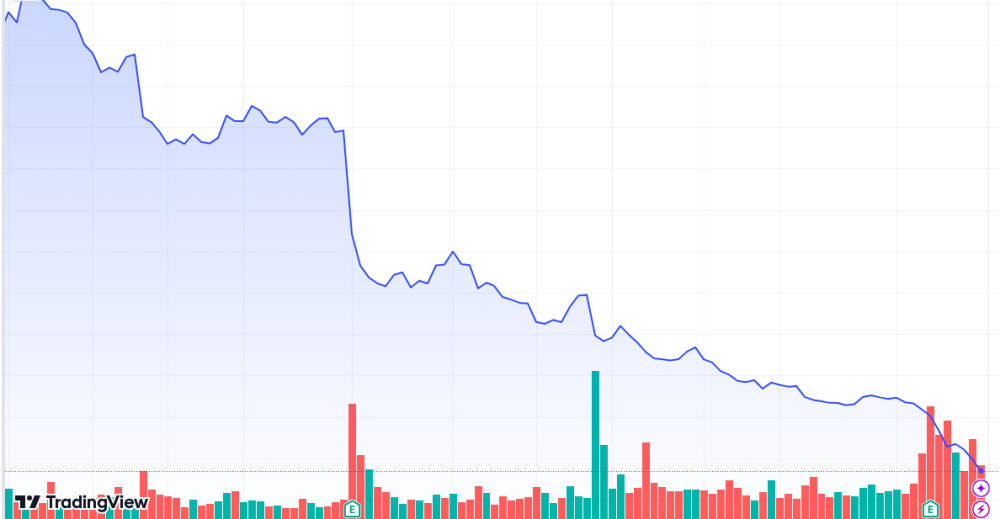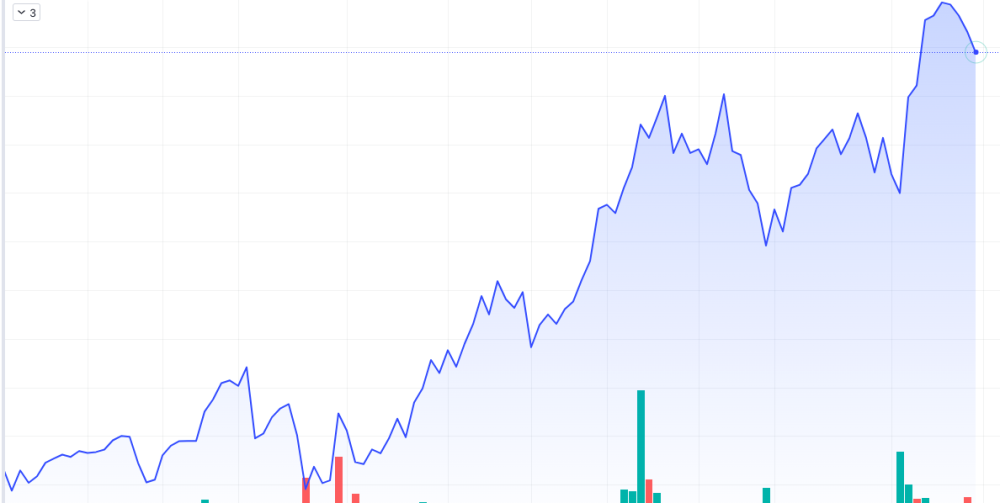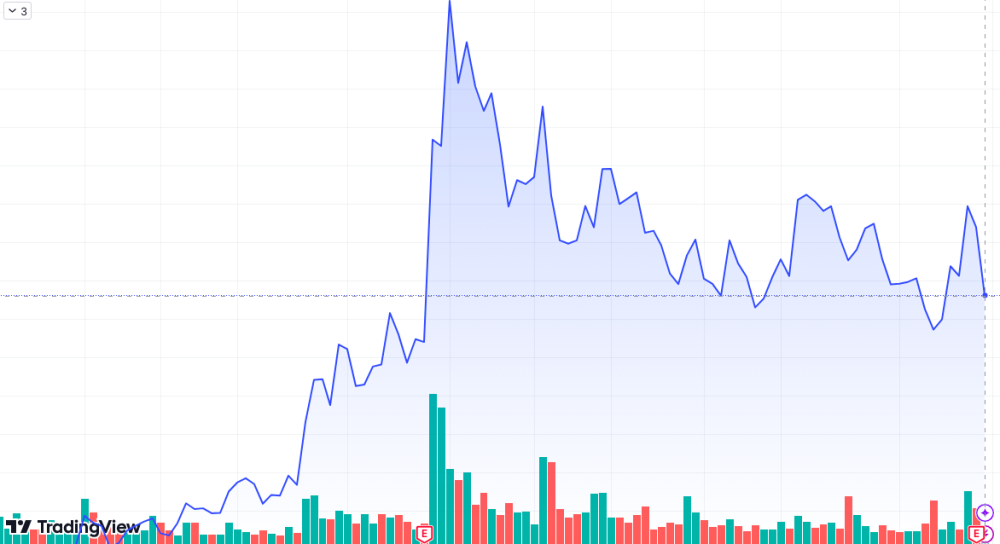The stock market, particularly in the pharmaceutical and energy sectors, has been reacting strongly to the news surrounding the nomination of Robert F. Kennedy Jr. as the head of the Department of Health and Human Services (HHS) by President-elect Donald Trump. With vaccine stocks seeing significant losses and energy companies adjusting their expectations, investors are feeling the pressure.
A Sudden Shock to Vaccine Stocks
Vaccine manufacturers, particularly Moderna (MRNA), Novavax (NVAX), and Pfizer (PFE), have been facing sharp declines in stock value, continuing their downward spiral from Thursday’s trading. Moderna and Novavax, in particular, have seen a drop of more than 30% in just the past month. The steepest declines were seen during premarket trading on Friday following Trump’s announcement of the Kennedy nomination. These stocks fell by over 1%, and the trend continued slightly during after-hours trading.
The impact is largely tied to the controversial stance that Robert F. Kennedy Jr. has long held regarding vaccines. His nomination to head HHS raised alarms among vaccine stockholders and others in the healthcare sector. Despite Kennedy’s assurance that vaccines would not be “taken away” from anyone, his long history of outspoken criticism against vaccine safety has made many in the industry uneasy. Kennedy’s nonprofit, Children’s Health Defense, has been one of the most vocal critics of childhood vaccinations, with Kennedy himself stating, “There’s no vaccine that is safe and effective.” These remarks have placed him in direct opposition to the pharmaceutical giants that have relied heavily on public trust in their vaccine products.

Trump’s support for Kennedy’s unorthodox stance on health has been evident. The President-elect stated, “I’m going to let him go wild on health. I’m going to let him go wild on the food. I’m going to let him go wild on medicines.” This sentiment has sent a clear message to the healthcare sector, and many analysts are predicting further volatility in vaccine-related stocks. The uncertainty surrounding this nomination has heightened fears of regulatory changes or a shift in public opinion that could hurt vaccine sales, leading to a sell-off in stocks like Moderna and Novavax.
Talen Energy’s Positive Earnings Amid Regulatory Hurdles
While the healthcare sector battles with political turbulence, Talen Energy (TLN) has been navigating its own set of challenges and opportunities. The company reported better-than-expected earnings for the third quarter, posting earnings per share (EPS) of $3.16, a significant improvement from a loss of $1.30 in the same period last year. The company’s revenue grew by 26% to $650 million, far surpassing analysts’ expectations of $522 million.

Despite this strong performance, Talen Energy has faced regulatory challenges, most notably a rejection from the Federal Energy Regulatory Commission (FERC) regarding its $650 million nuclear deal with Amazon. The deal, which was intended to provide nuclear power for Amazon’s data centers, was blocked after protests from other utilities, including American Electric Power (AEP) and Exelon (EXC), who argued that the deal bypassed federal charges incurred by grid operators. This regulatory setback has not deterred Talen Energy, however. CEO Mac McFarland remained optimistic, stating, “We are moving forward with AWS on commercial solutions,” signaling that the company is looking to the future and continuing to pursue other commercial opportunities, despite the setback.
Talen’s outlook for 2024 and beyond remains optimistic, with the company raising its adjusted EBITDA guidance to $750 million-$780 million and projecting adjusted free cash flow between $265 million-$285 million. The company also indicated strong growth for 2025, with expected adjusted EBITDA of $925 million-$1.175 billion. Talen’s stock surged more than 220% in 2024, though it did experience a 1.6% dip following the earnings release.
Nuclear Energy: A Sector on the Rise
Talen Energy’s performance reflects the broader trend in the nuclear energy sector, which has been booming, driven by rising demand from tech giants like Microsoft and Amazon for clean energy to power their data centers. In September, Constellation Energy (CEG) struck a major 20-year deal with Microsoft to provide nuclear power for its data centers, pushing nuclear energy stocks into the spotlight. Other companies like Vistra (VST) and Exelon have seen similar gains, buoyed by strong earnings and optimistic future outlooks.
Despite the recent regulatory setback, there’s a growing sentiment that the future of nuclear energy remains strong, especially with increasing demand from AI data centers and tech companies looking for sustainable, reliable energy sources. In fact, the rapid expansion of these data centers is putting a strain on traditional power grids, and nuclear energy is seen as a solution for meeting the massive energy demands of the digital age.

AST SpaceMobile’s Struggles and Satellite Dreams
In the satellite and space sector, AST SpaceMobile (ASTS) has been facing its own set of challenges. The company recently reported a significant loss of $1.10 per share, up from a loss of 23 cents per share a year ago, and revenue fell short of analysts’ expectations. However, the company remains focused on its ambitious plan to build a global space-based cellular broadband network, differentiated by its ability to connect everyday smartphones to orbiting satellites.
AST SpaceMobile’s satellite network, which will consist of up to 168 satellites, aims to provide 4G/5G connectivity in underserved regions, targeting markets in the U.S., Europe, Japan, and beyond. The company’s long-term goal is to provide worldwide cellular coverage for both government and commercial applications, with launches expected in 2025 and 2026. Although AST SpaceMobile’s stock has seen some volatility, dropping 14% on Friday and retracing early November lows, the company’s ambitious vision for space-based connectivity keeps investors intrigued.

Conclusion: Navigating the Storm
As the healthcare, energy, and space industries grapple with turbulent times, investors are left to navigate a shifting landscape. Vaccine stocks are feeling the heat from Kennedy’s nomination to head HHS, while Talen Energy and other nuclear energy stocks show resilience in the face of regulatory challenges. Meanwhile, AST SpaceMobile’s vision for global connectivity through satellite technology could reshape the way we think about communications in the future.
Ultimately, the markets are in a precarious position, with uncertainties clouding the horizon. But as history has shown, industries that innovate and adapt often find ways to weather the storm. Whether in the vaccine sector, energy market, or beyond, the key to survival may lie in how quickly companies can pivot in response to political, regulatory, and technological shifts.
Marc has been involved in the Stock Market Media Industry for the last +5 years. After obtaining a college degree in engineering in France, he moved to Canada, where he created Money,eh?, a personal finance website.

